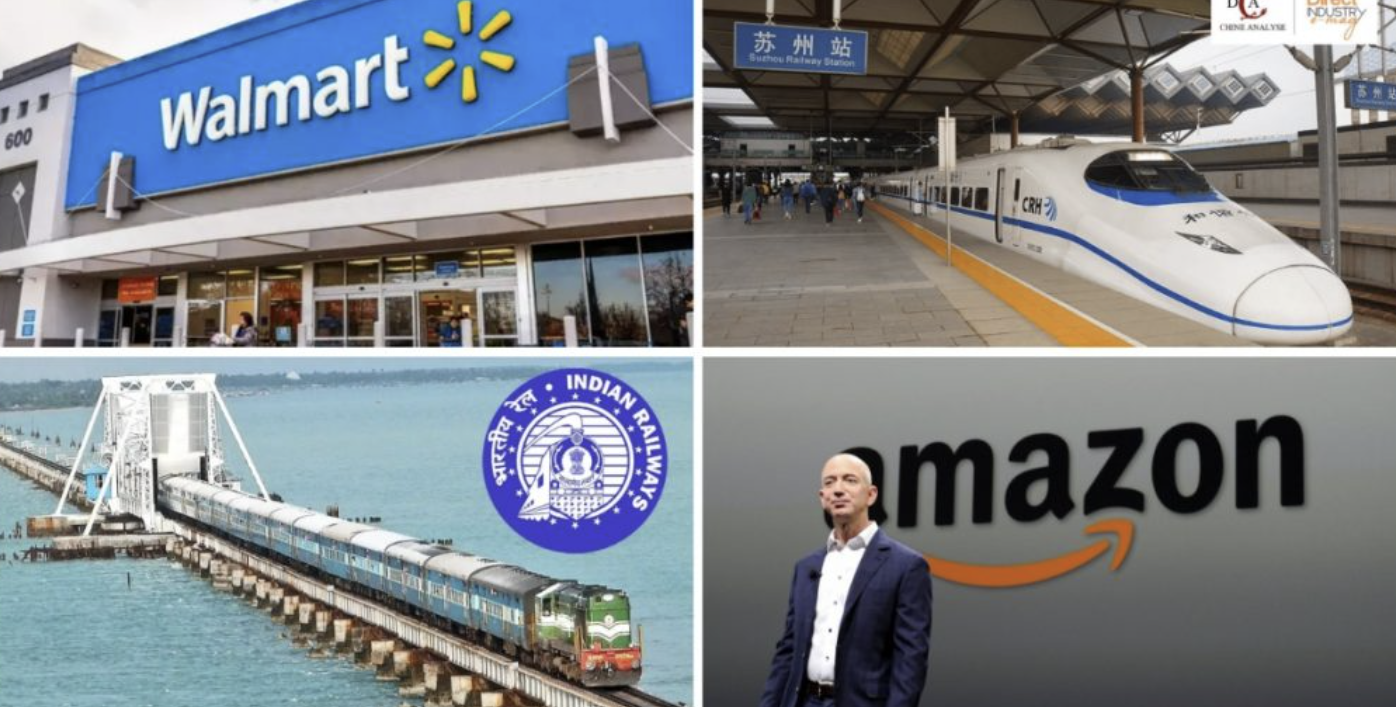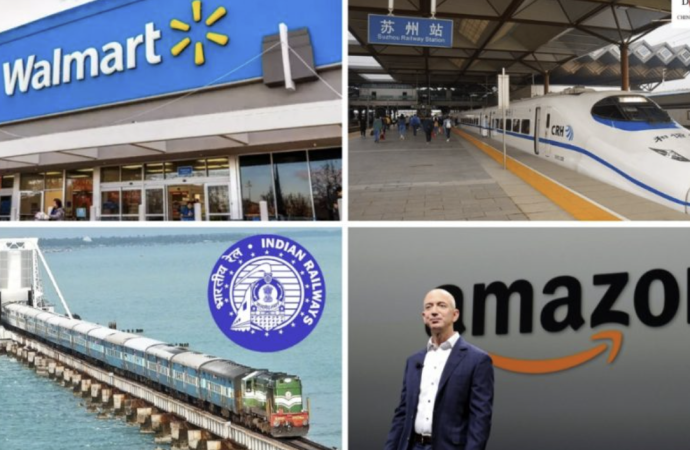When people think of multinational companies, they often imagine large headquarters and busy offices filled with workers. But it’s still surprising to learn just how massive some of these global organizations really are. Here’s a look at ten companies that employ millions of people around the world, starting with the smallest and working up to

When people think of multinational companies, they often imagine large headquarters and busy offices filled with workers. But it’s still surprising to learn just how massive some of these global organizations really are. Here’s a look at ten companies that employ millions of people around the world, starting with the smallest and working up to the largest private employer on the planet. From high-tech firms to long-standing manufacturing giants, these companies illustrate just how vast modern business operations have become.
10. JD.com
Employees: 517,124
Headquarters: China
JD.com, also known as Jingdong Mall, is one of China’s top e-commerce platforms. It offers a wide range of products from fresh produce to the latest gadgets, which requires a large workforce to manage. The company integrates technology into its logistics with drones, automated systems, and cutting-edge warehouses. However, a significant number of employees still handle tasks like packing and shipping orders, balancing machine efficiency with human oversight.
9. Compass Group
Employees: 550,000
Headquarters: UK
As a global leader in food service, Compass Group provides catering and support services to businesses, schools, and healthcare facilities. Its diverse operations—ranging from cafeterias to event catering—demand a massive team of chefs, servers, and hospitality managers. This global company ensures consistent quality across various environments, from casual corporate cafeterias to high-end dining, making employee training and service standards top priorities.
8. BYD
Employees: 570,100
Headquarters: China
BYD, which stands for “Build Your Dreams,” started as a battery manufacturer before expanding into electric vehicles and renewable energy solutions. The company employs thousands of people in research, production, and sales, particularly for its electric cars, buses, and solar panels. As demand for green transportation grows, BYD’s workforce continues to expand, particularly in international markets like Europe and North America.
7. DHL Group
Employees: 594,879
Headquarters: Germany
DHL Group, formerly Deutsche Post DHL, is a global leader in logistics and mail services. Its large workforce includes mail carriers, logistics planners, customer service agents, and IT specialists. With operations in over 220 countries, DHL connects businesses and consumers worldwide. The company also focuses on sustainability, investing in electric delivery vans, carbon-neutral shipping, and green warehousing, which requires even more staff to manage these eco-friendly initiatives.
6. Tata Consultancy Services (TCS)
Employees: 601,546
Headquarters: India
TCS is one of the world’s largest IT services and consulting companies, part of the Tata Group. It employs a wide range of professionals, including software developers, data scientists, and project managers, providing digital solutions for industries like finance, healthcare, and retail. With its extensive global presence, TCS helps shape tech trends in artificial intelligence, cybersecurity, and cloud computing, requiring a large, specialized workforce to deliver tailored services to its clients.
5. Volkswagen (VW)
Employees: 656,134
Headquarters: Germany
Volkswagen, a major car manufacturer, produces iconic vehicles like the Beetle and Golf and owns brands such as Audi and Porsche. Its vast workforce is essential for manufacturing everything from assembly line workers to engineers. With a focus on electric vehicles, VW has also invested heavily in new technologies, including specialized battery production and advanced software systems, contributing to its large and skilled workforce.
4. Accenture
Employees: 774,000
Headquarters: Ireland
Accenture is a global consulting firm providing services in strategy, digital, technology, and operations across multiple industries. The company’s large workforce includes experts in areas like cloud transformation, data analytics, and blockchain technology. Accenture also invests in emerging tech solutions, making it a top choice for professionals looking to work on cutting-edge projects.
3. Foxconn
Employees: 826,608
Headquarters: Taiwan
Foxconn is the world’s largest electronics contract manufacturer and assembles products for major tech brands like Apple. While automation has increased in its factories, Foxconn still relies on a vast workforce for tasks such as assembly, quality assurance, and logistics. The company has faced labor-related challenges over the years, but its need for workers remains high due to the massive global demand for electronics.
2. Amazon
Employees: 1,551,000
Headquarters: USA
Amazon, initially an online bookstore, has grown into a global giant across e-commerce, cloud computing, and streaming services. Its workforce includes fulfillment center employees, software engineers, customer service agents, and logistics experts, all necessary to handle the company’s extensive distribution network and global customer base. With new ventures in entertainment, electronics, and healthcare, Amazon’s employee count continues to rise as it expands its reach.
1. Walmart
Employees: 2,100,000
Headquarters: USA
Walmart holds the title of the world’s largest private employer, with over two million employees. The company operates thousands of stores globally and offers a wide variety of products, including groceries, electronics, and pharmaceuticals. Walmart has also made a significant shift to digital platforms, requiring additional staff in areas like e-commerce fulfillment, logistics, and technology to meet changing consumer needs.
Looking Beyond the Numbers
These global giants share a few key traits that have helped them grow to their current size. Diversification is one of the main factors—whether it’s Amazon expanding into cloud services or Volkswagen moving into electric vehicles. They also have a global presence, with operations in multiple countries, requiring region-specific facilities and staff. Additionally, technology and labor often work hand-in-hand, with companies automating certain processes but still relying on large human teams to manage complex operations.
The millions of people working for these companies play a crucial role in making their global operations possible. From overcoming logistical challenges to driving innovation, these workers keep industries moving forward. Each company’s workforce is the backbone of its success, showing that behind every global brand is a dedicated team making it all happen.

















Leave a Comment
Your email address will not be published. Required fields are marked with *